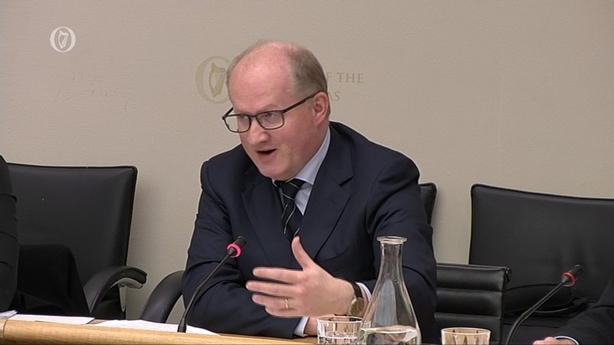Risks to the euro zone economy are still not balanced and the European Central Bank needs to see evidence that wage pressures are feeding into inflation before it shifts its policy stance, Central Bank Governor Philip Lane said today.
The euro zone economy has been on its best run for a decade and headline inflation has recently met the ECB's near 2% target.
This has fuelled calls from some quarters to start winding down the ECB's €2.3 trillion euro bond-buying stimulus programme.
But Professor Lane - a member of the European Central Bank governing council member - told Reuters that there was still some way to go before the ECB can feel comfortable about tweaks to its ultra-easy monetary policy stance.
"There is still downside but the tail risk... is fading and the momentum is back towards balance," he said "So still below balance but moving towards balance."
Professor Lane said the "key substantive debate" at the ECB is where inflation is headed over the medium-term given doubts around wage pressures in the bloc.
"We need to see evidence that wage inflation is actually on its way to a level consistent with the target," he said.
"The fact we are seeing reasonably good data on output and unemployment, that is nice, it is helpful, but the core of it is how much of it is going to map into sustainable inflation," the Central Bank chief said.
The ECB has committed to buying €60 billion worth of bonds every month until December, despite already facing self-imposed limits in certain countries, and to keeping rates at ultra-low levels until well after that.
Sources on and close to the ECB's Governing Council told Reuters last month that the bank may send a small signal about reducing monetary stimulus at its next meeting in June.
However, others have said autumn may be a more appropriate time.
Asked about the timeline for future monetary policy decisions, Professor Lane said: "Something has to happen in the rest of this year given there needs to be a plan in 2018."
The debate around limits to the bond programme was "secondary", he added.
"Central banks have a range of instruments and I don't think that discussion should deflect from the ability of the ECB to deliver its inflation target. We have the range of instruments that can deliver the inflation target," he explained.
Professor Lane is spearheading a European Union proposal to create synthetic "safe" assets backed by euro zone sovereign bonds that would help break the link between banks and governments that exacerbated the financial crisis.
It is designed to provide banks with a safe asset to use as collateral so they can reduce their exposure to their own governments' debt.
But Germany has already criticised the idea and it remains uncertain whether the European Commission will reference in its paper on the future of the euro zone at the end of the month.
"The task force is making good progress but it is purely a technical exercise. There are a wider set of issues in thinking about the potential role of these instruments in the wider European architecture," Mr Lane said.
"The European Commission paper and the views of various national authorities will evaluate this idea in the context about every other idea about the future of the euro zone. I hope it will be a helpful ingredient for the European system to think about how to make the euro area more robust in the future," he added.
Earlier, Professor Lane said that the weather should play a bigger role in decisions by financial firms looking to relocate on Brexit than differing regulatory regimes.

In an interview on Bloomberg TV, Professor Lane said regulators across the EU are "broadly" seeking to apply the same rules in each country, and it was not "accurate whatsoever" to say Ireland was being overly cautious.
"Firms need to think about office location, the workforce, the weather, taxes," he said. "They don't need to think about regulation," he added.
Ireland is seeking to present itself as a favoured destination for financial firms based in Britain that want to retain passporting rights, which facilitate doing business within the EU.
Minister of State for Financial Services Eoghan Murphy in March complained to the European Commission that other countries are offering looser regulations to attract companies moving operations out of the UK after Brexit.
While Ireland has lost out on Standard Chartered, which opted for Frankfurt, and AIG, which is looking to Luxembourg, Barclays has settled on Dublin for its main hub inside the EU after Brexit.

